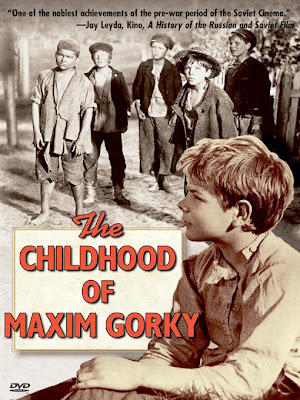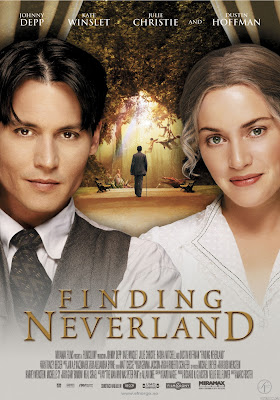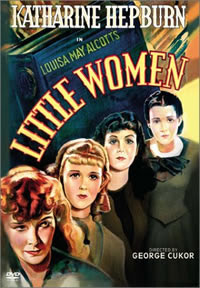 transforming sophisticated literary techniques into film. Does the leading actor really resemble the subject (whose photos or portraits are usually well known)? Is the film factually accurate or truthful (and is this true of its source)? Is it slanted in favor of or against the protagonist? Are there distortions of fact, omissions, invented incidents or encounters?
transforming sophisticated literary techniques into film. Does the leading actor really resemble the subject (whose photos or portraits are usually well known)? Is the film factually accurate or truthful (and is this true of its source)? Is it slanted in favor of or against the protagonist? Are there distortions of fact, omissions, invented incidents or encounters?
Some film biographies, such as Fi nding Neverland (2004), admit to not being completely factual, but most do not, and the majority of such films are built up by drawing on a variety of sources, augmented by scenes imagined or created by the scriptwriter. The result, as in Martin Scorsese's Raging Bull (1980), may be superb cinema but should not necessarily be considered a definitive account of the subject's life.
nding Neverland (2004), admit to not being completely factual, but most do not, and the majority of such films are built up by drawing on a variety of sources, augmented by scenes imagined or created by the scriptwriter. The result, as in Martin Scorsese's Raging Bull (1980), may be superb cinema but should not necessarily be considered a definitive account of the subject's life.
Comic books and comic strips have proved a consistent source of film material, though the various treatments of Batman and Superman, for example, usually consist of rewritten works based on a variety of incidents taken from the original rather than an adaptation of one particular story. Many popular television series have been turned into films, such as The Addams Family (1991) or The Brady Bunch (1995), on much the same principle of selection, and the recent vogue for graphic novels has also spilled over into film, as with Ghost World (2001) from the original by Daniel Clowes (b. 1961).
Films for children tend to be either live action, as in the several versions of Little Wo men (1933, 1949, 1994) and The Secret Garden (most recently 1993), or animated, as with the Disney classics Snow White and the Seven Dwarfs (1937) and Bambi (1942), though more recent films from that studio are too often saccharine distortions of what were quite tough-minded originals. The digital animation of The Polar Express (2004) recreates the visual world of the book very convincingly. Opera on film tends to be similar to "canned theater" (Miss Julie), directed by Alf Sjo with a few exceptions, such as Joseph Losey's (1909–1984) Don Giovanni (1979) or Francesco Rosi's (b. 1922) Carmen (1984), which were well reimagined for film. And longer poems such as Henry Wadsworth Longfellow's (1807–1882) Hiawatha (1952) or Alfred Lord Tennyson's (1809–1892) The Charge of the Light Brigade and Geoffrey Chaucer's (1340–1400) The Canterbury Tales have become (very loosely) the basis for feature-length films. Overall, then, almost anything written, or even drawn, can be transformed into a film, either faithfully or altered almost out of recognition, with success depending as much on the skill and intelligence of the filmmaker as the often uneven quality of the original material.
men (1933, 1949, 1994) and The Secret Garden (most recently 1993), or animated, as with the Disney classics Snow White and the Seven Dwarfs (1937) and Bambi (1942), though more recent films from that studio are too often saccharine distortions of what were quite tough-minded originals. The digital animation of The Polar Express (2004) recreates the visual world of the book very convincingly. Opera on film tends to be similar to "canned theater" (Miss Julie), directed by Alf Sjo with a few exceptions, such as Joseph Losey's (1909–1984) Don Giovanni (1979) or Francesco Rosi's (b. 1922) Carmen (1984), which were well reimagined for film. And longer poems such as Henry Wadsworth Longfellow's (1807–1882) Hiawatha (1952) or Alfred Lord Tennyson's (1809–1892) The Charge of the Light Brigade and Geoffrey Chaucer's (1340–1400) The Canterbury Tales have become (very loosely) the basis for feature-length films. Overall, then, almost anything written, or even drawn, can be transformed into a film, either faithfully or altered almost out of recognition, with success depending as much on the skill and intelligence of the filmmaker as the often uneven quality of the original material.
Ball, Robert Hamilton. Shakespeare on Silent Film: A Strange, Eventful History. New York: Theater Arts Books, 1968.
Bazin, André. What Is Cinema? 2 volumes. Translated by Hugh Gray. Berkeley: University of California Press, 1967.
Bluestone, George. Novels into Film. Berkeley: University of California Press, 1973 [1957].
Chatman, Seymour. Coming to Terms: The Rhetoric of Narrative in Fiction and Film. Ithaca, NY: Cornell University Press, 1990.
Enser, A. G. S. Filmed Books and Plays: A List of Books and Plays from which Films Have Been Made, 1928–86. Hampshire, UK: Gower Publishing, 1987.
Giddings, Robert, Keith Selby, and Chris Wensley. Screening the Novel: The Theory and Practice of Literary Dramatization. New York: St. Martin's Press, 1990.
Jorgens, Jack J. Shakespeare on Film. Bloomington: Indiana University Press, 1977.
Klein, Michael, and Gillian Parker, eds. The English Novel and the Movies. New York: Frederick Ungar, 1981.
Naremore, James, ed. Film Adaptation. New Brunswick, NJ: Rutgers University Press, 2000.
Peary, Gerald, and Roger Shatzkin, eds. The Classic American Novel and the Movies. New York: Frederick Ungar, 1977.
——, eds. The Modern American Novel and the Movies. New York: Frederick Ungar, 1978.
Sinyard, Neil. Filming Literature: The Art of Screen Adaptation. New York: St. Martin's Press, 1986.
Smith, Grahame. Dickens and the Dream of Cinema. New York: Manchester University Press, 2003.
Smith, Murray. Engaging Characters: Fiction, Emotion, and the Cinema. New York: Oxford University Press, 1995.
Wheeler, David, ed. No, But I Saw the Movie: The Best Short Stories Ever Made into Film. New York: Penguin Books, 1989.
No comments:
Post a Comment